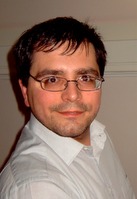


A wide class of stochastic processes are described in the non-Markovian Generalized Master Equations (GME) framework [1]. Many techniques are based on the Markovian assumption of weak memory effects [2]. When the theory goes beyond the weak coupling regime or when the intrinsic non-Markovian nature of the bath plays a role, the number of known approaches dramatically drop. We briefly review the approach we developed to characterize fluctuations in the presence of non-Markovian effects. We will make use of the concept of Full Counting Statistics (FCS) [3] and we show how some of the Markovian techniques developed for the GME [4] are generalizable to the non-Markovian case [5]. We present the recursive method which unifies, extending, earlier approaches making possible the calculation of very high order cumulants, cross-correlators and finite frequency noise [6]. With this machinery we will investigate the physics of coherent nanodevices and nanomechanical systems[7].
[1] H.-P. Brauer and F. Petruccione, The theory of open quantum systems, Oxford Univ. Press, Oxford (2003).
[2] Quantum Noise, ed. Yu. V. Nazarov, Kluwer, Dordrecht (2003).
[3] L. S. Levitov, H. Lee, and G. B. Lesovik, J.Math. Phys., 37, 4845, (1996); B. Reulet, J. Senzier, and D. E. Prober, Phys. Rev. Lett., 91, 196601 (2003); Yu. Bomze, G. Gershon, D. Shovkun, L. S. Levitov, and M. Reznikov, Phys. Rev. Lett., 95, 176601 (2005); T. Fujisawa, T. Hayashi, R. Tomita, and Y. Hirayama, Science, 312, 1634 (2006).
[4] D. A. Bagrets and Yu. V. Nazarov, Phys. Rev. B, 67, 085316 (2003); C. Flindt, T. Novotny, and A.-P. Jauho, Europhys. Lett. 69, 475 (2005).
[5] A. Braggio, J. König, and R. Fazio, Phys. Rev. Lett. 96, 026805 (2006).
[6] C. Flindt, T. Novotny, A. Braggio,M. Sassetti and A.-P. Jauho, Phys. Rev. Lett.100, 150601 (2008)
[7] C. Flindt, T. Novotny, A. Braggio and A.-P. Jauho, Phys. Rev. B 82, 155407 (2010).
Announcement (pdf)



A wide class of stochastic processes are described in the non-Markovian Generalized Master Equations (GME) framework [1]. Many techniques are based on the Markovian assumption of weak memory effects [2]. When the theory goes beyond the weak coupling regime or when the intrinsic non-Markovian nature of the bath plays a role, the number of known approaches dramatically drop. We briefly review the approach we developed to characterize fluctuations in the presence of non-Markovian effects. We will make use of the concept of Full Counting Statistics (FCS) [3] and we show how some of the Markovian techniques developed for the GME [4] are generalizable to the non-Markovian case [5]. We present the recursive method which unifies, extending, earlier approaches making possible the calculation of very high order cumulants, cross-correlators and finite frequency noise [6]. With this machinery we will investigate the physics of coherent nanodevices and nanomechanical systems[7].
[1] H.-P. Brauer and F. Petruccione, The theory of open quantum systems, Oxford Univ. Press, Oxford (2003).
[2] Quantum Noise, ed. Yu. V. Nazarov, Kluwer, Dordrecht (2003).
[3] L. S. Levitov, H. Lee, and G. B. Lesovik, J.Math. Phys., 37, 4845, (1996); B. Reulet, J. Senzier, and D. E. Prober, Phys. Rev. Lett., 91, 196601 (2003); Yu. Bomze, G. Gershon, D. Shovkun, L. S. Levitov, and M. Reznikov, Phys. Rev. Lett., 95, 176601 (2005); T. Fujisawa, T. Hayashi, R. Tomita, and Y. Hirayama, Science, 312, 1634 (2006).
[4] D. A. Bagrets and Yu. V. Nazarov, Phys. Rev. B, 67, 085316 (2003); C. Flindt, T. Novotny, and A.-P. Jauho, Europhys. Lett. 69, 475 (2005).
[5] A. Braggio, J. König, and R. Fazio, Phys. Rev. Lett. 96, 026805 (2006).
[6] C. Flindt, T. Novotny, A. Braggio,M. Sassetti and A.-P. Jauho, Phys. Rev. Lett.100, 150601 (2008)
[7] C. Flindt, T. Novotny, A. Braggio and A.-P. Jauho, Phys. Rev. B 82, 155407 (2010).
Announcement (pdf)